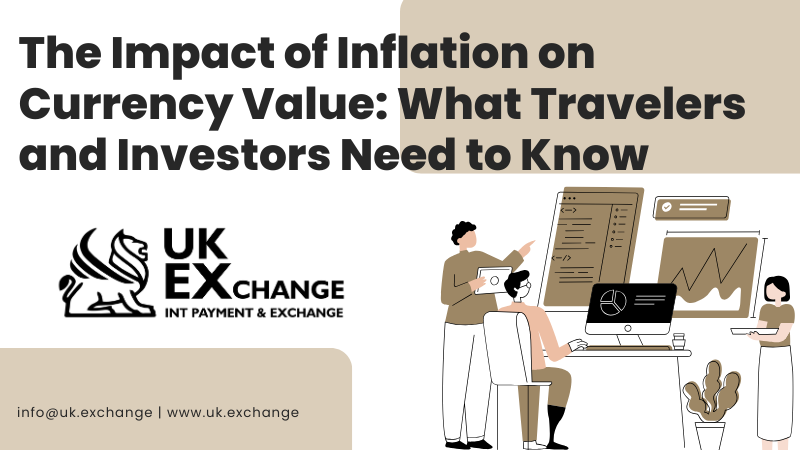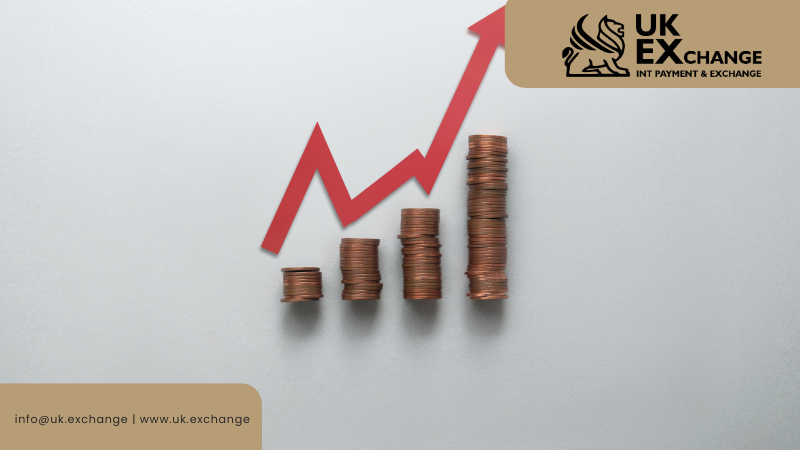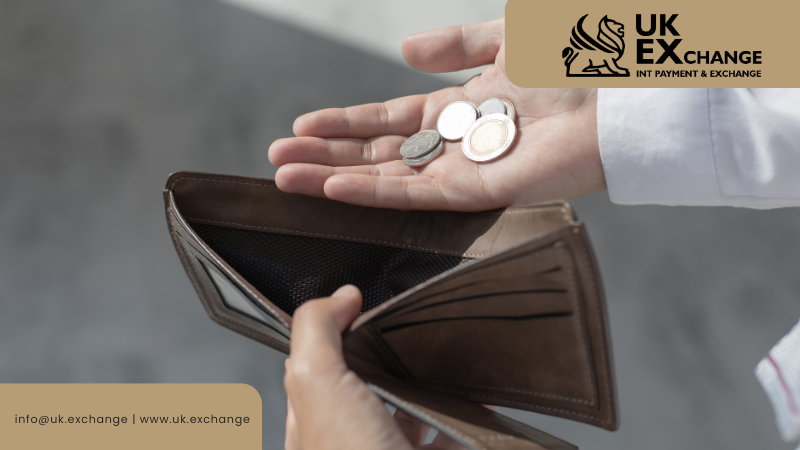
The Impact of Inflation on Currency Value: What Travelers and Investors Need to Know
Most people only think about exchange rates when planning a vacation, but inflation quietly affects these rates all the time. In general, higher inflation erodes a currency’s purchasing power. This usually causes the currency to weaken relative to others, while low inflation tends to support a stronger currency. For example, if prices are rising faster in the UK than abroad, one pound buys less at home and abroad, so the pound will likely fall against other currencies. Conversely, a nation with stable prices and higher interest rates often sees its currency rise. In short, inflation and currency value are inversely linked: as Investopedia notes, high inflation “often leads to a weaker currency, while low inflation generally supports a stronger currency.”
Many factors play into this relationship. Central banks respond to inflation by adjusting interest rates, which also affect currency demand. In theory, exchange rates tend to move so that identical goods cost about the same everywhere (the purchasing power parity idea). In practice, when inflation is high, central banks usually raise rates. Higher rates attract foreign investment and can strengthen the currency, even amid rising prices. Conversely, if inflation is low and rates are steady or cut, the currency may weaken.
UK Inflation and the Pound (GBP)
UK inflation slowed from a 2022 peak (~11%) to around 2–3% by late 2024. This moderation in inflation has eased some pressure on the pound. (BoE = Bank of England.)
In summary, key points include:
- Higher inflation → weaker currency: Rising prices mean each unit of currency buys less at home, so foreigners demand it less. This trend tends to depreciate the currency.
- Central bank actions: To fight inflation, central banks may hike interest rates. Higher rates can bolster a currency by attracting investors. Low rates (often accompanying low inflation) have the opposite effect.
- Purchasing power parity (PPP): Over time, currencies tend to adjust so that price levels align across countries. If the UK has higher inflation than the Eurozone, PPP implies the pound should weaken versus the euro.
The UK’s recent inflation history shows these principles at work. Inflation peaked at an unusually high 11.1% in October 2022 (the highest in 41 years) and has since fallen sharply. By late 2024, the CPI inflation rate was around 2.5%–3% – much closer to the Bank of England’s 2% goal. For example, official data show UK inflation eased from 2.6% in November 2024 to 2.5% in December 2024, reflecting cheaper travel services and a slowdown in wage growth.
These shifts influenced sterling. When inflation overshoots forecasts, markets adjust. In February 2025, UK inflation came in at 3.0% (above the 2.8% expected), and the pound briefly strengthened on the news. Reuters reported that higher-than-expected inflation “weakened the case for the Bank of England to cut rates,” which supported sterling in the short run. Likewise, when inflation fell in late 2024, market expectations of rate cuts rose, which briefly pressured GBP.
Looking forward, most forecasters expect UK inflation to stay above 2% through 2025. The government’s Office for Budget Responsibility and the Bank of England both predict inflation around 3–4% by mid-2025. This means inflation and policy will continue to sway GBP. If inflation stabilizes around target, the pound could strengthen over time. But if UK prices pick up again, sterling may weaken further.
In short, GBP inflation impact has been clear: the 2022-23 price surge weighed on the pound, and the recent cooling has given it some relief. As one expert noted, lower inflation would give the currency “greater purchasing power,” while sustained inflation forces the BoE to keep higher rates, which in turn shapes the pound’s value against the dollar and euro.

Global Context: Other Currencies and Inflation
While GBP’s story is set in the UK, currency markets are global. Inflation paths in other countries also influence exchange rates with the pound. For example, the GBP/USD rate is highly sensitive to both UK and U.S. inflation. When U.S. inflation was high in 2022, the Federal Reserve raised rates rapidly. This made the dollar strong and GBP/USD weaker (falling toward $1.20–$1.25). Conversely, as U.S. inflation cooled, dollar strength eased. In early 2025, the pound traded around $1.25–$1.30 partly because U.S. inflation had come down.
Similarly, the EUR/GBP exchange rate reflects UK vs. Eurozone inflation. For much of 2024, Eurozone inflation was roughly in the low-2% range. With both economies seeing similar rates, EUR/GBP moved mostly on monetary policy signals. (In late 2024 the ECB cut rates modestly while the BoE held steady, giving a slight edge to the pound.)
In short, exchange rates and inflation are tied everywhere. If Britain’s inflation outpaces that of its trading partners, the pound is likely to weaken against those currencies. If UK inflation lags, the pound can strengthen. Historical events show this: for example, the Brexit shock in 2016 both weakened GBP and later contributed to higher UK inflation. Today, with inflation pressures still elevated globally (due to energy and post-pandemic effects), shifts in relative inflation and policy continue to drive currency markets.
Implications for Travelers
Travelers feel these inflation-currency effects most directly when budgeting a trip. A weaker pound – often linked to higher UK inflation – means UK residents need more pounds to buy the same foreign currency. In practical terms, when GBP falls, holidays abroad become more expensive. As RBC notes, currency moves can have “far-reaching implications” beyond just exchange kiosks.
Inflation at home also matters. When UK prices rise (for everything from fuel to meals), travelers may have a smaller disposable income for vacations. Inflation at the destination affects cost, too. If prices in, say, Italy are rising faster than in the UK, your euro will buy less in Rome even if GBP/EUR stays the same.
On the flip side, the pound’s weakness can be a boon for inbound tourism: visitors with dollars or euros will find the UK cheaper when GBP is low. For UK travelers planning outbound trips, the general rule is clear: inflation and exchange rates determine how far your budget stretches abroad.

Implications for Investors
Investors must likewise account for inflation-driven currency risk. Currencies introduce a second layer of volatility: returns on foreign investments can be magnified or erased by exchange-rate moves. As FINRA explains, even a rising asset can yield no gain if its currency falls by the same percentage. For example, a U.S. stock that gains 10% in dollar terms will give zero profit to a British investor if the pound simultaneously strengthens 10% against the dollar.
Within UK markets, inflation and currency also interact with corporate earnings. Many major British companies earn most of their sales abroad. RBC notes that about 80% of FTSE 100 revenues come from overseas, often in dollars. When sterling weakens, those foreign revenues convert into more pounds, often boosting the FTSE 100. Conversely, a stronger pound reduces the GBP value of overseas earnings.
At the same time, a weak pound raises the cost of imports. In fact, RBC points out that a weak pound “tends to push up inflation” by making imports expensive – which can squeeze companies’ margins and real incomes. High inflation anywhere can trigger sudden rate hikes or policy moves, jolting currency markets. International investors must monitor both price levels and monetary responses worldwide.
Conclusion
Inflation and currency value are deeply intertwined. In the UK and globally, rising prices weaken currencies, while low inflation tends to strengthen them. The recent UK inflation surge hurt GBP, while the slowdown has stabilized it. Travelers and investors alike are affected: exchange rates shape travel costs and asset returns. Understanding how inflation influences currency helps decode markets in an increasingly global and volatile economy.
Sources: Analysis based on data from Investopedia, Reuters, RBC Wealth Management, FINRA, and UK economic forecasts.
Disclaimer
The information provided in this blog is for general informational purposes only and should not be construed as professional financial, legal, or investment advice. While we strive to ensure the accuracy and reliability of the information presented, UK Exchange make no guarantees regarding the completeness, accuracy, or suitability of the content. Readers are encouraged to consult with qualified professionals for advice tailored to their individual circumstances.

